第382章
My dear Farrer, Mr. Torbitt's plan of overcoming the potato-disease seems to me by far the best which has ever been suggested. It consists, as you know from his printed letter, of rearing a vast number of seedlings from cross-fertilised parents, exposing them to infection, ruthlessly destroying all that suffer, saving those which resist best, and repeating the process in successive seminal generations. My belief in the probability of good results from this process rests on the fact of all characters whatever occasionally varying. It is known, for instance, that certain species and varieties of the vine resist phylloxera better than others. Andrew Knight found in one variety or species of the apple which was not in the least attacked by coccus, and another variety has been observed in South Australia. Certain varieties of the peach resist mildew, and several other such cases could be given. Therefore there is no great improbability in a new variety of potato arising which would resist the fungus completely, or at least much better than any existing variety. With respect to the cross-fertilisation of two distinct seedling plants, it has been ascertained that the offspring thus raised inherit much more vigorous constitutions and generally are more prolific than seedlings from self-fertilised parents. It is also probable that cross-fertilisation would be especially valuable in the case of the potato, as there is reason to believe that the flowers are seldom crossed by our native insects; and some varieties are absolutely sterile unless fertilised with pollen from a distinct variety. There is some evidence that the good effects from a cross are transmitted for several generations;it would not, therefore be necessary to cross-fertilise the seedlings in each generation, though this would be desirable, as it is almost certain that a greater number of seeds would thus be obtained. It should be remembered that a cross between plants raised from the tubers of the same plant, though growing on distinct roots, does no more good than a cross between flowers on the same individual. Considering the whole subject, it appears to me that it would be a national misfortune if the cross-fertilised seeds in Mr. Torbitt's possession produced by parents which have already shown some power of resisting the disease, are not utilised by the Government, or some public body, and the process of selection continued during several more generations.
Should the Agricultural Society undertake the work, Mr. Torbitt's knowledge gained by experience would be especially valuable; and an outline of the plan is given in his printed letter. It would be necessary that all the tubers produced by each plant should be collected separately, and carefully examined in each succeeding generation.
It would be advisable that some kind of potato eminently liable to the disease should be planted in considerable numbers near the seedlings so as to infect them.
Altogether the trial would be one requiring much care and extreme patience, as I know from experience with analogous work, and it may be feared that it would be difficult to find any one who would pursue the experiment with sufficient energy. It seems, therefore, to me highly desirable that Mr. Torbitt should be aided with some small grant so as to continue the work himself.
Judging from his reports, his efforts have already been crowned in so short a time with more success than could have been anticipated; and I think you will agree with me, that any one who raises a fungus-proof potato will be a public benefactor of no common kind.
My dear Farrer, yours sincerely, CHARLES DARWIN.
[After further consultation with Sir Thomas Farrer and with Mr. Caird, my father became convinced that it was hopeless to attempt to obtain Government aid. He wrote to Mr. Torbitt to this effect, adding, "it would be less trouble to get up a subscription from a few rich leading agriculturists than from Government. This plan I think you cannot object to, as you have asked nothing, and will have nothing whatever to do with the subscription. In fact, the affair is, in my opinion, a compliment to you." The idea here broached was carried out, and Mr. Torbitt was enabled to continue his work by the aid of a sum to which Sir T. Farrer, Mr. Caird, my father, and a few friends, subscribed.
My father's sympathy and encouragement were highly valued by Mr. Torbitt, who tells me that without them he should long ago have given up his attempt. A few extracts will illustrate my father's fellow feeling with Mr. Torbitt's energy and perseverance:--"I admire your indomitable spirit. If any one ever deserved success, you do so, and I keep to my original opinion that you have a very good chance of raising a fungus-proof variety of the potato.
"A pioneer in a new undertaking is sure to meet with many disappointments, so I hope that you will keep up your courage, though we have done so very little for you."Mr. Torbitt tells me that he still (1887) succeeds in raising varieties possessing well-marked powers of resisting disease; but this immunity is not permanent, and, after some years, the varieties become liable to the attacks of the fungus.]
THE KEW INDEX OF PLANT-NAMES, OR 'NOMENCLATOR DARWINIANUS.'